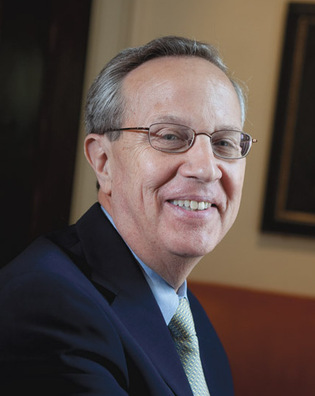 loading
loading
Q&A: Rick LevinCorporate funding for medical scienceYale president Richard Levin ’74PhD discusses the advantages and pitfalls of university-corporate partnership.  Mark OstowView full image
Y: Gilead Sciences has given Yale funding to analyze tumor cells for harmful mutations, and then to search for drug possibilities that Yale might license to Gilead. [“See Drug Company Bets on Basic Research.”] How unusual is this arrangement? L: The Gilead partnership will advance our basic knowledge of what mutations cause disease and of the mechanisms and pathways by which these mutations have their impact. It’s a novel form of partnership, because Gilead will be supporting both basic and translational research [to translate lab discoveries into medical practice] rather than just licensing a molecule, at the end of that discovery process, to develop it into a drug. Gilead’s scientists will meet regularly with ours, so that they understand the research as it proceeds and gain a deeper understanding of the biological mechanisms involved. Early information about what works and what won’t is very valuable to drug companies, which have to spend hundreds of millions of dollars testing any molecule they want to develop. I have been involved in looking at the weakness of our national drug development process on the President’s Council of Advisers on Science and Technology. Both the industry and the FDA are concerned about the reduced pace of drug development, and they are looking for new models. The Gilead example is definitely getting attention. It’s a deeper form of collaboration than has been tried before. Y: Pfizer has had a longer-term project. L: Ten years ago Pfizer was looking for a place where, during the early stages of drug testing, they could use PET scanning—positron-emission tomography—to screen out drugs that weren’t going to work because they weren’t getting to the right part of the brain. But they knew PET technology needed a lot of development and that the methods would get better and better in the hands of first-class scientists who were developing the technologies. So it was a natural collaboration. Pfizer has a clinical testing enterprise in New Haven, and they installed a state-of-the-art PET center for joint use. They are doing something that is very commercially valuable to them, but we are doing research on PET technology and using the PET facility for all kinds of other biomedical research. Y: About how much money comes to the medical school from corporations? L: Up until the Gilead partnership, we had about $10 million in corporate support annually—less than one percent of the medical school’s budget. With Gilead, the total in the next few years will be closer to $20 million annually. Y: The possibility of bias or conflict of interest is surely an issue you grapple with. L: Absolutely. We have a faculty committee that deals with conflict-of-interest issues and another that deals with cooperative research arrangements. Everything gets very rigorously reviewed. I chaired the precursor to both committees when it was established almost 30 years ago. In the early years after the Bayh-Dole Act in the 1980s, which allowed universities to patent the results of government-funded research, we turned down many proposals as faculty explored what types of arrangements were acceptable to the university. Y: What’s a recent proposal that was turned down? L: Very few get turned down today, because we have well-established ground rules on corporate funding. Nonetheless, we did have a recent case where we turned down corporate support because the faculty investigator proposing to do the work had a substantial consulting contract with the sponsoring company. Y: Pepsi is funding a graduate fellowship at Yale—in nutrition, which does make one sit up and take notice. L: Pepsi provides funding for one PhD student a year and has no influence over the selection of that person. Y: A Yale medical school professor, Cary Gross, has found that drug studies are 3.6 times more likely to be favorable when they’re company funded. Yale, like many universities, does some of these studies. L: Yes, but you’re talking now about clinical trials, as opposed to research and discovery partnerships like the Gilead and Pfizer arrangements. Clinical testing of drugs for safety and efficacy is essential, and Yale has processes to ensure that conflicts of interest are eliminated or managed. It’s important for the public interest that we learn which drugs work and which don’t, and which have unacceptably toxic side effects. Besides, these tests can provide useful scientific information that will help scientists advance towards the next set of discoveries. As long as there is appropriate oversight, clinical trials are a good thing. Going back to research and discovery activities, I don’t see much problem there. In fact, I believe that as a nation, we’re going to need more collaboration between the drug companies and universities and the government funding agencies in order to make progress and to maintain our national leadership in the pharmaceutical industry and in drug discovery. Y: Do you have any concerns about grants like these moving scientists away from research on the fundamentals and toward research on drugs? L: As an institution with broad public purpose, we should care about both those things—the advancement of knowledge for its own sake and the ability to contribute to the social well-being by discovering drugs that work. Enabling people to be healthier is an appropriate objective of the Yale School of Medicine and the life scientists throughout the university.
The comment period has expired.
|
|